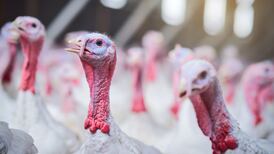Greater awareness and public debate about the information age were needed if we were not to find ourselves living in a "polarised society", the Data Protection Commissioner, Mr Fergus Glavey, said in his 1996 annual report, published yesterday.
Mr Glavey said society needed to decide not only what could be done but what should be done with information technology.
"The next few years will decided whether information technology will be our master or our servant", he said.
Many people would be comfortable with computers but others would be unable or unwilling to use them, and would be deeply suspicious of them as well.
"People will feel less excluded if their concerns are recognised as valid and if they know how the law protects their privacy and even how technology itself can be used to enhance privacy."
Mr Glavey said his office received over 1,700 queries, written and by telephone, in 1996. Some 1,100 of these were from individuals concerned about their rights under the Data Protection Act. The others were received from data controllers asking about their responsibilities.
The office received 18 formal complaints in 1996, compared to 37 in 1995. However, the total number of complaints, at 85, was only one less than 1995.
Mr Glavey gave a number of examples of cases handled by his office. In relation to the use by the Central Statistics Office of data held by the Department of Social Welfare live register, the commissioner said this did not contravene the Data Protection Act.










